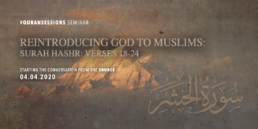Shaking hands, hugs and kisses
I was asked by some people about the culture of Muslims hugging every time they meet, both men and women. Although I’m not sure exactly how frequent it is amongst women, in some circles Muslim men will hug when greeting one another on every occasion, even where they see each other every few days. To a large extent, even where it is unsaid, many assume it is either religious or the ‘Muslim’ thing to do.
Here I’m not trying to explicate the entire fiqh issue, but simply raise some basic conclusions that need considering.
So what’s the story?
Saying ‘Assalamu alaikum’ is explicitly mentioned in revelation, along with the advantages in doing so (such as spreading sentiments of peace in communal living). God says, "When you are offered a greeting respond with a better one, or at least return it." (4:86) Ibn al-Qayyim, the Hanbali sage, wrote that this goes for all those who greet you with sincere wishes, including both Muslims and non-Muslims. Thus if someone greets you with ‘good morning’ it is a moral duty (according to Quranic sentiments) to respond with the same or better. Similarly, Ibn Muflih in his work Adab al-Shar’iyyah stated that it was prophetic practice to say (what today’s equivalent would probably be) “Good morning” instead of salam.
Is touching upon greeting and meeting merely a cultural expression, or religious?
Imam Malik disliked shaking hands or hugging as related by Ibn Wahb and Ibn Abdil Barr, and a position taken by Suhnun et al. Qadi Ibn al-Arabi wrote that this was because Malik didn’t view it as a general stipulation nor decisively from revelation like the saying of salam, for if it were, Malik would have regarded them saying salam and shaking hands the same. However, al-Qurtubi seems to have disagreed with Malik, quoting the hadith of Bara b. Aazib (al-Tabarani) where Bara said to the Prophet who shook his hand, "I thought shaking the hands was something foreigners do?!’ He replied: "We are worthier of doing so; if two Muslims shake hands with one taking the hand of another out of love and sincerity between them, their sins are shed." (The foreigners he was referring to was probably the Yemenites.) What we might note from this narration is:
Firstly, that shaking hands is between two people who know one another. Secondly, that the reward (and concomitantly the encouragement, or nadb) is based on doing it out of love and sincerity between two people - the reward is for the heartfelt sentiment and not from the mere act of hand-shaking, since it wasn’t widespread amongst the Companions previously (as intimated by Bara). Perhaps it was for this reason that Qatadah enquired from Anas b. Malik whether the Companions would shake hands. Whilst other hadiths also speak of how hand-shaking removes sins, the hadith of Bara contextualises the reasons behind it. Other hadith such us "shake hands for it removes enmity" (al-Muwatta') should also be contextualised by the above, and this is probably where Imam Malik was coming from in his antipathy towards establishing shaking hands and hugging as a religious practice.
However, most jurists were of the view that it is a religiously encouraged act based on numerous reports. Whatever the case, there is no problem with shaking hands and it is certainly a decent thing to do between people who know one another. Bara is also quoted in Adab al-Mufrad as saying: "a complete greeting is to shake the hands of your brother" which is also narrated by Ibn Mas'ud elsewhere.
As for those who don’t know one another well, the lowest common denominator between all jurists is that they may do if they wish, but it isn’t a must, and if someone doesn’t seem inclined to do so, no offence should be taken nor should they be taken to task out of a misplaced sense of religiosity. However, we must also consider that in certain circumstances, normal societal customs will dictate the thing to do, just because there is no explicit shar'i declaration doesn't mean it's not rude, and it does not befit the believer to come across as such. I guess there has to be a balance between a cognisance of pervading social norms and the right to bodily autonomy.
To be clear, what I'm saying is that the actual physical contact is inconsequential in itself - the reward is in the expression of the heartfelt sentiment (which can be achieved without actually touching). Shaking hands is not a ritual act but a means by which the sentiment is expressed. Shaking hands on its own is a cultural gesture, and merely for being the cultural ‘thing to do’ doesn’t accrue the rewards mentioned the hadiths.
As for repeated hugging, it is narrated by Anas b. Malik that a man asked the Prophet whether people should hug and kiss when they meet. The prophet said "no". But when he was asked about shaking hands the Prophet replied in the affirmative. (al Tirmidhi and Ibn Majah) However, there is some nuance to be had here. al-Sha’bi relates that the Companions would shake hands when they would meet, and hug when they returned from a journey. (al-Tahawi) It is also reported that the Prophet hugged Ja’far b. Abi Talib when he returned from East Africa. What this tells us is that hugging is a cultural practice, and general appropriateness in the Prophet’s time used to limit it to significant occasions (such as journeying) or a notable circumstance, but not as a general norm of greeting.
This is particularly important in our (British) context. I believe general appropriateness still limits it to specific occasions, and in particular contexts such as a viral pandemic (like SARS or the coronavirus) it is something that we need to avoid. But even beyond this, many who do not ascribe to certain cultural norms (converts or otherwise) do not hug so frequently nor feel very comfortable with such frequent bodily contact. With a culturally plural religious community there must be some acknowledgement that we’re not all the same, and thus, it is wise to demarcate between what is religious and cultural, so as not to impose such norms on others or unnecessarily put them in an uncomfortable situation.
And God alone has complete knowledge.
Women dancing at celebrations
This brief article has been motivated by a frequent notion I've heard over many years, particularly when people ask me about, or comment on, women dancing at gender-segregated weddings. The idea that dancing is haram is somewhat of a widespread notion, and whilst it can be held as a view that relates to both men and women, there seems to be particular disapproval of women dancing. This isn’t simply a matter of misogyny; women are often the most trenchant in their criticism of other woman.
Here I unpick much of the conversation around this issue and shed light on the basis of erroneous misgivings, that they namely come from two things: incorrect shar’ī understanding, conflations, and/or the imposition of cultural norms on others. The point I’m making in this brief post is that to regard dancing as intrinsically offensive to God and hence impermissible is not only incorrect, but that the antipathy of most tends to be cultural which are substantiated by conflating issues. Of course, if an individual doesn’t like dancing then that's fine. But as long as the context of dancing doesn't exceed certain boundaries, some of which I'll explain, then there's no legitimate basis to make claims of impermissibility, let alone condemn others for it.
Re-introducing God to Muslims: Surah Hashr
This seminar kicks off our foray into particular chapters and passages from the Quran for deep contemplation. Through an interconnected approach that brings together contemplation (tadubbur), lateral thinking (tafakkur), exegesis (tafsir) and functionalisation, we closely study the final verses of Surah Hashr (59:18-24) to explore who God is and what He tells us.
We don't simply concentrate on His names and attributes, but contextualise His self-description so as to understand how He wants us to construct our view.
Date: Saturday 4th April 2020.
Time: 11am-3pm.
Venue: Hackney CVS, 24-30 Dalston Lane, Hackney, London E8 3AZ
Refreshments provided.
To confirm your place, book below:
What is this 'Islam' that people claim to subscribe to?
10 min read
Is it a religion, a way of life, a belief system?
Everyone has their own idea of what it is and what it ought to be. But for the most part, I would say that many ascribe to what operates for most as a social construct.
But how so?
We take the Arabic verbal noun islam (which means "subservience to God") from the Qur'an, and instead of translating it as we would along with everything else, we write it out as Arabic in the English language (transliteration) and use it as an English proper noun, like John, Adam, Christianity, etc. This causes many people then to view what should simply be understood as the Abrahamic take on subservience to God as an eastern theistic culture that contains a number of (sometimes outlandish) directives and stories rather than a description which is what it's supposed to be.
God’s account of reality
In the digital world ideological battles rage, whilst in the real world matters informed by faith are addressed in highly abstract ways. My argument for some time has been that the reason much of this happens is because we fail to adopt God’s account of reality and the first principles from which we ought to proceed.
(Personally, this has been my obsession from the very beginning of my journey, and remains something I am primarily invested in.)
Perhaps if people understood the below, firstly we’d be in a different league, and secondly, we’d pretty much be all on the same page. I advise spending some time to understand the outline provided here: go away and think about it deeply. It highlights what I mean by first principles and meta-narratives (the grand story), what one might need to do and where to begin, whilst sketchily proposing where things generally go wrong.
1. God gives us an account of reality. The most fundamental aspects of it that we need to know are explicitly laid out; the rest is inferred and for us to diligently explore and investigate. We need this account of reality to contextualise and make sense of everything else that follows. To substantively employ this account requires some shar’ī learning.
2. God gives us a system (something like an algorithm) for sustainable and positive living, known as the sharī’ah, which is rooted in that account of reality. The sharī’ah is not simply law in the form of commands and prohibitions, but all that God wants us to engender - comprising of commands, prohibitions, advice, warnings, lessons, and directions.
The account of positive living addresses:
- The intellect: acquiring knowledge and functionalising it, reasoning coherently, and employing rationality
- The mind and heart: strengthening mental wellbeing and building emotional resilience
- The body: maintaining good health and physical strength
- Interactions (with others): including trade, social relationships (marriage/friendships/ parenting etc), communal interests, and how to resolve disagreements/grievances; and interactions with the environment include how to engender sustainable use of resources.
3. On aḥkām (laws): We ought to know that commands and prohibitions do not only concern outward/perceivable actions that we do with our limbs, they also pertain to inward actions of the heart, such as feelings and emotions towards God and others. We ought to understand that what we’re told to do or avoid provides a standard of behaviour for positive living. We then develop this behaviour to become even more resilient and instituted in the most productive way to do life.
4. The Islamic disciplines/sciences (‘ulum) exist as methods to intellectually justify one’s understanding of God’s account. They are not the ends in themselves nor provide the account itself. The level of study/learning one requires is premised on the level of justification one intends to provide - this is the realm of scholarship. Laymen are required to turn to the learned to be informed of God’s account of reality, and here identifying the appropriately qualified persons is extremely important for acquiring a workable and productive account. Thus, there is a type of study for being informed, and another for justification; the former is for informed non-specialists, and the latter for trainee scholars. The curriculum for each is very different, although everyone ought to begin with the former, since God brought all of us out of our “mothers’ wombs knowing nothing.” (16:78)
5. In the public/political realm, everything we do as believers and as a reflection of His will ought to reflect God's account of reality and be rooted in it. This has been the way of the righteous from before, and what was meant by “follow the guidance they received.” (6:90) So when Muslims depart from that account, they end up having to adopt other accounts of reality, such as liberalism, conservatism, feminism, post-colonialism, and so on. (I might add that this is also how religious sects form.) These accounts offer some truths, but also many inaccuracies, and due to being built on flawed accounts of reality they are unable to realise the potential of the few truths they do contain.
6. There are also those who assert their commitment to God’s account of reality, but fail to fully grasp it or woefully misunderstand it (in the general sense), either due to shar’ī illiteracy, intellectual inconsistency, or because they make presumptions informed by particular interests (such as anti-colonialism, anti-racism, misogyny, personality worship, etc). Often, this leads to some form of laxity or extremism since they are then only partly informed and thus considerably guided by other accounts of reality.
Going back to the beginning, shedding our baggage, and starting afresh
One of the greatest things I’ve come to experience in my public work and engagement, whether it be at mosques, independent workshops/seminars or social media, is the disconcerting level of religious illiteracy that is prevalent and widespread – whilst people are quite confident they know something. Most of those ‘somethings’ are based on wild assumptions, misunderstandings or preconceived ideas picked up from outside of shar’ī sources. Or they’re taken in an atomised way and out of context and consequently make little sense in the way they are functionalised. People who might be considered ‘informed’ are those who’ve simply picked up atomised tidbits from here and there, with a long list of dos and don’ts (And obviously, there’s little edifying about this form of religion, which is why religion becomes a burden rather than uplifting.)
The fallacious ‘chosen people’ syndrome has lulled many into a false sense of security and hubris, one example is the smugness found in the sentiment: “Look at these kuffar, look at their churches, they’re empty!” while Muslims overlook mosques also getting emptier.
Not being a part of the main religious body of this country has led most Muslims to use arbitrary markers to differentiate themselves, many assume (even those who aren’t actively submissive to God!) that always trying to maintain a counter-culture is what makes their beliefs and practices valid or ‘authentic’.
Not only does it create unnecessary hardship for socially integrated Muslims who seek to live out faithful and godly lives without unnecessarily emotionally-draining friction, but expecting everybody to tow their line creates an unbearable pressure that causes many to leave what they assume to be Islam. Islam is not in random acts but to live out a holistic way that speaks to the overarching intent of God and what He wants of humans on earth. When they eventually recognise it as merely being about counter culture, almost against the fitrah, irrational, and essentially not about God, the potency of what they once thought was a great thing is now lost.
But the truth is that Islam has never been a great thing here. I know it’s controversial to say it, but it’s the truth. Obviously I don’t mean islām as God’s account of true and valid subservience, but ‘brand Islam’ – the political and ethno-cultural entity it commonly exists as.
Think about it like this (similitude): Islam is a gold bar – if articulated correctly its compelling nature to a theist is undeniable, and those who have diverged from the creed of Abraham (unbelievers) are poverty-stricken – greatly in need of it and would desire it if they knew it in its actual form. Now you’d think handing out gold to the poor for nothing in return would be a walk in the park, and that everyone would want to be rich! Yet that hasn’t happened at all, and not because people “just want to follow their desires” but because of what Islam is advocated as (which I too don’t find to be compelling!) – it is unprecedented that such vast amounts of people see Islam as backwards, irrational and unjust. In the past, rejection was based on Islam simply being too radical, egalitarian and just! Statistics show that most who do convert leave the deen soon after, usually due to being around other Muslims and the kind of religion they’re taught. The majority of converts will tell you that it’s been a struggle being around ethno-Muslims, and what they’ve taught. And the reason they go along with it is down to humility: “I’m new to this, maybe what’s not making sense is because I don’t know enough. They say I’m struggling because I haven’t fully submitted my desires, maybe that’s true.”
Although true subservience to God is an uplifting force in every sense of the word, pseudo-Islam remains a cultural inheritance amongst immigrant communities. Beyond this cultural inheritance, the vast majority have no compelling reason why they’re Muslims. They offer arguments about the existence of God, but such ontological arguments just tell us why they’re theists (believe in God), not how Islam (as an account of what God wants) is a compelling account of theism. And if you can’t explain why Islam is compelling to you, they you certainly can’t get others to see it’s compelling nature.
Now when Muslims ask me to explain how Islam is compelling, I usually ask what their motive is. Are they simply looking for some rhetorical arguments that’ll superficially validate the culture they’re committed to? Or are they seeking the truth no matter what it is (even if it completely negates everything they know/do)?
Hypothetically, if I were to prove to them that their islām isn’t true, would they leave Islam and seek the truth elsewhere? How far does the claim of sincerity go in practice? The only people who tend to respond to this line of conversation positively are converts since they’ve actually been through it all before and demonstrated a commitment to what’s true, whatever the case might be. But this then tells us something:
In order to engage true subservience to God as God defines it, we must be willing to go back to the beginning, shedding our baggage, and starting afresh. One must be willing to start again at the (fiṭrī) idea of theism and then build a new coherent and consistent narrative that’s compelling to one’s soul. For all intents and purposes, we need to convert, to go from those who merely claim an Abrahamic devotion to God to those who truly believe in what the Prophets brought.
Indeed it’s a journey, but how many are willing to sincerely undertake it, submit to God, and the truth?
Understanding "Muhammad is the Messenger of God"
4 min read
Q: Shaikh, I'm not sectarian and I find that neither the sufi nor salafi appellation work for me. (I agree with you that we need to mature beyond sectarianism). One thing I've always been uncomfortable about, and I guess it’s intuitive, is the way people explain "Muhammad is the messenger of Allah" and make it all about the prophet, peace be upon him. I feel this leads to hero worship because it centers the kalima around the personality. In their explanation, the emphasis seems to be on Muhammad the person, rather than his role as a messenger. Does Allah speak about this part of the kalimah or provide some insight?
A: Yes, God does.
The shahadatain has purpose and speaks to a number of different things simultaneously. If we go into the early years in Makkah, proclaiming that Muhammad was God's messenger would inform the pagan Quraishi leaders as to one's allegiance, and to undermine their power and hold. It was an open rejection of their pagan gods, their superstition, and their unjust social practices. Later on in Madinah, it would undermine competing claims from others, such as Musailamah, Aswad al-Ansi, and others, and emphasise that it is the Muhammadan sharī’ah and Qur'an that God actually revealed, and not what the liars and false prophets present. Exaggerating the status of the Prophet by stating that his name alongside God proves his quasi-divine like station, as some do, is not only a poor argument but deeply nefarious. And yes, they often focus on the noble person of the Prophet more than they do God. Ultimately, there is no comparison nor status-based proximity between God and men, and many hadith exhibit the Prophet's deep unease and anxiety at such a perilous situation occuring, especially since those before us fell into such darkness. For example, Umar b. al-Khattab related that the Prophet said: "Do not exaggerate in praising me as the Christians praised the son of Mary for I am merely a servant. So call me the servant of God and His messenger." (al-Bukhari)
On the otherhand, to speak of God's emissary as the average Joe is unbecoming of any believer, as if the Messenger of God was just some ordinary person. He was normal, but certainly not ordinary. And to speak of him with a mediocre regard is to offend God, since the Prophet is His closely loved servant and one He holds in the highest regard.
As for how we might productively engage with the shahadatain (testimony of faith and commitment), I find the following Qur'anic narrative concerning the disciples of Christ highly instructive. Here we are presented with a practical manifestation of the same commitment and formula - the shahadatain, albeit around Jesus:
"When Jesus realized they (still) did not believe, he said, ‘Who will help me in God’s cause?’ The disciples said, ‘We will be God’s helpers; we believe in God - witness our devotion to Him (literally: “witness that we are muslims”). Lord, we believe in what You have revealed and we follow the messenger: record us among those who bear witness [to the Truth].’"
Qur'an 3:53
Their response strongly infers that the desire to become God's helper is the natural inclination of those who believe in God and are devoted (the Arabic uses the word muslim) to Him. This seems to be a Qur'anic explanation of the formula "There is no god but God". As for an explanation of the formula "Muhammad is the messenger of God," the verse continues on to suggest that it is to believe in what God revealed (in our context the Qur’an), and follow the messenger. And we openly testify to this so that we may be recorded among those who bear witness to the Truth, both in this world, and with God.
The statement "Muhammad is the messenger of God" is to say that his divine appointment is true - to deliver the divine message (the Qur'an) which we ought to be consumed by, understanding it the way God’s messenger taught. Where God refers to Muhammad as a messenger, He clearly draws our attention to revelation:
A messenger from God, reading out pages [blessed with] purity, containing true scriptures.
Qur'an 98:3-4
Of course, learning about him as a person entrenches us further in that belief and commitment, as it shows God's wisdom in choosing Muhammad b. Abdullah specifically, but it is not meant to turn our attention away from the message (and the One who sent it) to the messenger instead - that’d be quite irrational and clearly illegitimate.
I sympathise with such anxieties, and perhaps it raises how important a holistic conception is – one that doesn’t fall into any extremes.
May God guide us to truth, and complete knowledge rests with Him.
Maturing Beyond Sectarianism
It seems to be the growing sentiment of many Muslims that a maturation of Islamic thought that helps British Muslims find a comfortable and productive space in British society is direly needed. Social maturation is a complex process, so any assumption that a brief article can chart its course might be overly ambitious. However, to resolve anything of a complex nature the first step naturally requires a shift from one-dimensional perspectives to an appreciation for nuance (layered depth), and from naysaying to positive contribution.
We don't have to justify what is halal, we have to justify what is haram
5 min read
There is a very well known shar’ī maxim that goes: The default in matters is permissibility based on the verse, "It is He who created all that is on the earth for you." (2:29) The basic understanding is that things are to be taken as halal (permitted) unless there is something that compellingly informs us that it is haram (impermissible). The practical points that come out of this:
1. Subservience to God isn't built on restrictions; this is not a godly attitude. Yes, we should be diligent in abstaining from those things that God deems harmful, but that's after we've strongly established God doesn't want those things for us. A godly mentality doesn't view the shariah as a restrictive framework but a constitutive one - it's more about what we do than what we don't do.
2. Seeking to be restrictive (rather than engendering diligence) contradicts what God wants. To prevent an austere outlook God warns, "Believers, do not ask about matters which, if made known to you, might make things difficult for you..." (5:101) The Qur'an offers many examples of how such an attitude leads to misguidance, most notably in the example of the Children of Israel. In fact, one of the reasons Jesus was sent to them was to temper their austerity! "I have come to confirm the truth of the Torah which preceded me, and to make some things lawful to you which used to be forbidden." (3:50)
3. God does not encourage austerity/restrictiveness anywhere in revelation, and in fact the opposite is true. We are told:
- "Strive hard for God as is His due: He has chosen you and placed no hardship in your deen." (22:78)
- "God wants ease for you, not hardship." (2:185)
- "God wants to lighten your burden; man was created weak." (4:28)
- "Say: ‘Who has forbidden the adornment and the nourishment God has provided for His servants?’ Say, ‘They are permitted for those who believe during the life of this world: they will be theirs alone on the Day of Resurrection.’ This is how We make Our revelation clear for those who understand." (7:32)
4. We must acknowledge our subjective interpretations and biases and be very careful not to impute these on God. This is why we find that earlier believers were particularly careful in making pronounced judgements of "halal" and "haram” and would instead say things like "I don't like it" or "that doesn't work for me" instead of saying emphatically "this is haram." Such behaviour was in following what God said, "Do not say falsely, ‘This is permitted and that is forbidden’ inventing a lie about God: those who invent lies about God will not prosper." (16:116)
Now I sympathise that this way of thinking can be challenging for some who have socialised into viewing 'religiosity' as a list of don'ts, or with those who fear that it opens the floodgates to lewd permissiveness and iniquity. I don't believe such fears are well founded since God clearly didn't when informing people of the optimum attitude.
To conclude, what I seek (here and beyond) is:
1. To address this misconstruction so that we rightly focus on the 'dos' which is far more inspiring, stands as actual weight on the scales of final judgement, and brings about actual productive outcomes. Not doing doesn't build much, it simply averts things. Where there is a focus on doing righteous productive things, harms are averted and benefits are produced simultaneously. It's an efficient attitude, and one God seems to promote. Furthermore, a prohibitory attitude causes us to obsess on material things rather than talk about, and celebrate, God.
2. To erode the idea that the moment we undermine a restrictive attitude or speak about the permissibility of particular matters that somehow it's a licence to legitimise immorality or what God has clearly sanctioned, or that we identify with the bizarre and paradoxical interests of "progressives/reformists", who we must acknowledge have capitalised on the cognitive dissonance induced by illegitimate restrictiveness (such as the abuse of "sadd dhari'ah" - the slippery slope argument). Without indulging "progressives/reformists" delusions, we need to speak to the suffocating mentality so that believers are unshackled by faith to experience the delights (halawah) of īmān and 'ubūdiyyah and witness its uplifting results.
3. To clarify that God wants us to celebrate all He has made available to us and constantly show our appreciation (hamd/shukr). We do not have to 'arrive at the conclusion' that something is permitted since that's a default position that doesn't change unless there's a strong argument to restrict the freedom to indulge. To be clear, I have no right to make subservience to God 'easier' for people, it is a right reserved solely for God. But God has articulated His expectations and in His own words He has made subservience easy, often effortless, since man was created weak, and suffocating or dissonance-inducing conceptualisations severely undermine the ability of humans to enjoin in consistent and persistent subservience. God says, "Believers, be mindful of God, as is His due, and make sure you devote yourselves to Him, to your dying moment." (3:102) And in speaking to consistency, Aishah relates that the Prophet would teach that the most valued actions to God are "those that are consistent, even if they are minimal." (al-Bukhari)
The hill to die on
There are many things that people choose to make their hill to die on, the significant contribution they made here, but what they often overlook is whether that’s gonna be the thing they want to meet God with. Imagine standing before the Lord of all the worlds, King of kings, Subduer of all realms, and speaking of the greatest contribution you sought to God’s plan for humans on earth:
“I wanted to make sure we sighted the moon properly”
“I tried to get people to believe the Prophet was alive/dead in his grave”
“I tried to convince people that shaikh X was the greatest scholar”
“My mission was decolonialism”
“I was a proud anti-racism campaigner”
“I argued against critics of x mad’hab”
“I wanted to prove Jesus shall return”
“I wanted people to know wiping over their socks in wudhu isn’t allowed”
Now neither is my point to negate the idea that we all naturally have different roles to play for the collective benefit of God’s servants, nor that some of these things aren’t important to the greater plan, but God didn’t put us on earth primarily for any one of the above nor is every one of things legitimately a task for everyone.
Yes, many of these things some of us ought to pay attention to, but it should be in a way that speaks to the overall divine project, not as singular subject matters in and of themselves.
One of the main tasks we have (and an important corollary to appreciating God and purifying ourselves for Him, which is also the essential purpose of ‘enjoining good and forbidding bad’) is to produce and maintain an environment that’s conducive to appreciating God and purifying ourselves for Him. This means that everything we do ought to speak to this objective, and undertaken in a way that directly leads to it. And it’s very evident that most Muslims do not (instead relying on short-term fixes or superficial approaches and arguments appropriated from wider narratives) and as a result much hasn’t positively changed or progressed.
When we don’t, then we are simply unable to to resolve such issues productively, since the atomisation of solutions (which overlooks the interconnected nature of all aspects of human life) result in superficial resolutions and not substantial rectification (islah).
And the more people atomise their approach, the more at risk they are of falling into a silo mentality and parochialism - both a plan of the devil and something God warns believers about through tales of the Children of Israel.
The brief point here is twofold:
- Keep your eye on big picture and ultimate purpose
- Don’t commit your time to silly or inconsequential issues, have something substantial to meet God with.











